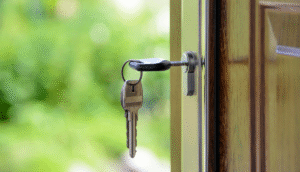
The last couple of years have seen vacancy rates tighten significantly. In Brisbane and other parts of southeast Qld, vacancy rates have even crept as low as 0.7%, according to SQM Research data.
What this means is that less than 1 in every 100 rentable properties is actually available for tenants.
It’s great news for landlords who have been able to increase their asking rents, but it’s tough for tenants. It doesn’t get much harder to find a rental in a market like this.
That’s why it’s more important than ever to make yourself as eligible as possible and stand out from the crowd during the application process.
But how do you do it?
Attention to basics
Leasing agents never cease to be amazed at how many tenants don’t fill out their application forms properly. Why would an agent bother with an incomplete or incorrectly filled out form when they can simply disregard it and move onto one of many others that have been submitted?
Presenting….
It’s important to dress well and be charming when engaging with the agent. But these days, agents may also head to your social media pages when doing their due diligence, so ditch the party pics on Facebook and Instagram and ensure your work and financial details are up to date if you are on LinkedIn.
Success is in the detail
When it comes to financial suitability, you need to sell yourself. For those on a salary, the longer you have been employed in your current job, the more stable you appear. For self-employed folks, at least two years’ worth of business financials is desirable.
If unemployed, a statement showing your savings is necessary, plus an explanation as to why you are between jobs. You may be taking time off before starting a new role, been made redundant, or sold a business for a windfall, in which case you still have the funds to comfortably cover the duration of a lease.
Apply for properties within your financial reach. If you’re looking to pay more than 35% of your income on rent, it may raise a red risk flag for a landlord.
Rental resume
You wouldn’t apply for a job without a CV, so apply the same thinking here. Create a rental resume with job details, salary, financial statements, pay slips, prior rental experience and reference letters with the contact details of referees. A copy of your photo ID is also a must.
If you are planning to sharehouse, get your housemates’ documents ready to go too.
There are also apps out there such as 1Form that allow you to use a single form for multiple applications and provide tenant verification for agents (for a fee of course), so consider such options for streamlining an application.
Put paid to history
Your rental history should show that your rent was always paid on time. Agents will check the rental histories of all applicants, including their rental ledgers, which include details of every rental payment they have ever made.
If you are neck and neck with another applicant who happens to have a perfect ledger, while yours has a blemish, it will most likely cost you the tenancy.
If there are any outstanding bills or monies owed to previous landlords or property managers, make sure you settle them before applying for your next property. Otherwise you could be wasting your time.
If it’s your first rental, you won’t have a history to refer to. But a letter detailing your financial stability and promising to take good care of the landlord’s property could be a nice touch.
Play the long game
If you plan to stick around a while, offer to sign a longer term lease. Any landlord who has had to repeatedly fill tenant vacancies knows how costly it can be, so will jump at the chance of a 2 or 3 year lease and some financial certainty. The added benefit is that it also protects you from short term rental hikes.
Next, if you are financially able, offer as much of the money upfront as you can. Paying six months’ worth of rent in advance will show how serious you are.
Finally, if you have relevant skills, such as gardening or carpentry, you could offer to do some maintenance as part of the deal.
Need help finding a rental property? Speak to our Blink Property team now.
Related posts


Why Traditional Rental Management No Longer Works Today


